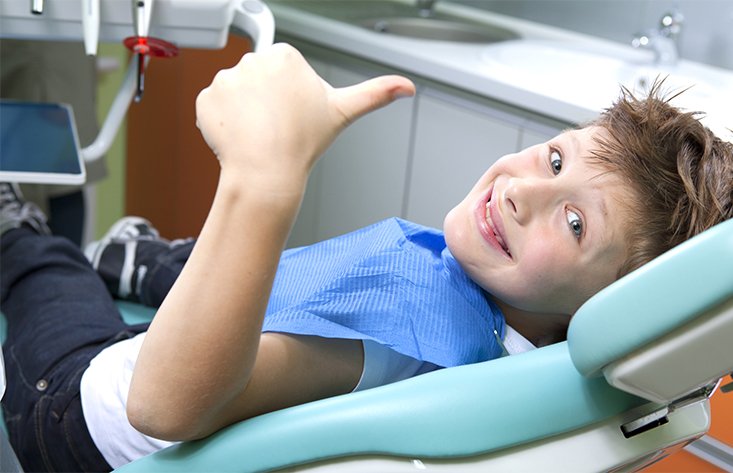

At Arizona Smile Designers, we are happy to provide expert dental procedures to patients of all ages in our family-friendly office environment. The doctors and staff of our family dentistry understand that positive oral health begins as soon as a baby is born and continues for the rest of their life. That’s why we encourage you to bring your child to our dental practice at a young age for regular checkups and cleanings and to get started with the habits of good oral hygiene. But it takes far more than just trips to the dentist to keep your little one’s teeth and gums healthy.


The primary, or “baby,” teeth play a crucial role in dental development. Without them, a child cannot chew food properly and may have difficulty speaking clearly. Primary teeth are vital for development of the jaws and for guiding the permanent (secondary) teeth into place when they replace the primary teeth around age 6.
Since primary teeth guide the permanent teeth into place, infants with missing primary teeth or infants who prematurely lose primary teeth may require a space maintainer, a device used to hold the natural space open. Without a maintainer, the teeth can tilt toward the empty space and cause permanent teeth to come in crooked. Missing teeth should always be mentioned to your family dentist. The way your child cares for his/her primary teeth plays a critical role in how he/she treats the permanent teeth. Children and adults are equally susceptible to plaque and gum problems —hence, the need for regular care and dental checkups.
To relieve the soreness of your baby’s gums when primary teeth arrive, try rubbing gums gently with a clean finger or wet cloth to help soothe them. Teething rings work well, but be careful not to overdo teething biscuits as they contain unwanted sugar that can cause early decay in baby teeth. During teething, it’s important to watch for signs of baby bottle decay. Every two weeks, you should take some time to inspect teeth, especially on the inside or the tongue side. Look for dull spots that are brighter than the surface of the tooth or thin lines where the teeth and gums meet. Don’t leave bottles of milk or juice in an infant’s mouth while sleeping as the contents of the bottle can mix with the baby’s saliva to form acids that can attach damage his or her tooth enamel. To prevent baby bottle tooth decay, make sure you gently brush your baby’s teeth with a baby-friendly fluoride toothpaste at least twice each day and do your best to make sure that they don’t fall asleep with a bottle in their mouth.


A child’s first dental visit should be scheduled around his/her first birthday, according to the American Academy of Pediatric Dentistry. This visit is crucial because we’ll be able to check for cavities, watch out for any developmental problems and educate you on the best oral hygiene techniques and regimens. The most important part of the visit is getting to know and becoming comfortable with your Cottonwood family dentist and staff. A pleasant, comfortable first visit builds trust and will help put your child at ease during future dental visits. We will always work to create a fun and welcoming environment for your kids at their appointment so they always feel right at home.
Very! The whole body, including the mouth, needs a steady supply of essential vitamins and minerals to stay healthy and it gets them from the foods we eat. We encourage our patients to make sure their kids are getting everything they need to grow up healthy and strong, by maintaining a well-rounded diet with foods from the five main food groups, while limiting the number of sugary snacks to prevent tooth decay. This can be challenging, but the benefits will be far-reaching and long-standing. Some foods will even help make your kids’ smiles stronger, with nutrients like calcium coming from dairy products, or fiber-rich foods like carrots that can boost saliva production to keep their mouth cleaner.